Breast Augmentation in Ha Noi
Search and Compare the Best Clinics and Doctors at the Lowest Prices for Breast Augmentation in Ha Noi
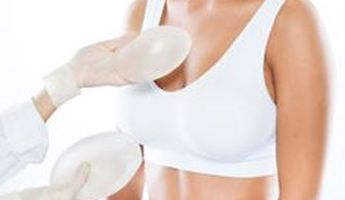
Find the best clinics for Breast Augmentation in Ha Noi
With Medijump you can browse 1 facilities offering Breast Augmentation procedures in Ha Noi. The cheapest price available is $2,600 in Ho Chi Minh City
Breast Augmentation in Vietnam
Price: $ 2,600
Breast Augmentation in Ho Chi Minh City
Price: $ 2,600
Breast Augmentation in Da Nang
Price: $ 50,000,000
Hungary offers the best prices Worldwide
Price: $ 208
Emcas Medical Hanoi, located in Ba Dinh, Ha Noi, Vietnam offers patients Breast Augmentation procedures among its total of 15 available procedures, across 4 different specialties. Currently, there's no pricing information for Breast Augmentation procedures at Emcas Medical Hanoi, as all prices are available on request only, whilst the national average price is approximately $25,001,300. All procedures and treatments are undertaken by just a small team of specialists, with 2 in total at the Hospital, and they are not accredited by any recognized accreditations institutes
Compare Before & After Photos of _procedure_photos.phpBreast Augmentation
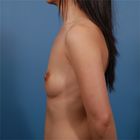

Full-side view
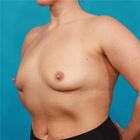
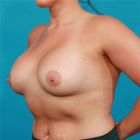
Half-side view
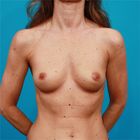

Front view
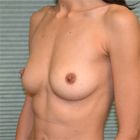

Half-side view
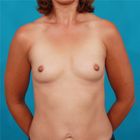
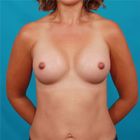
Front view
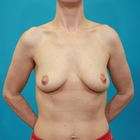

Front view
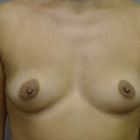
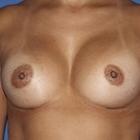
Front view
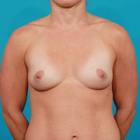
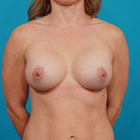
Front view
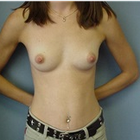
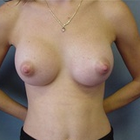
Front view
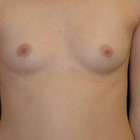
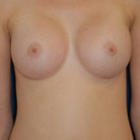
Front view
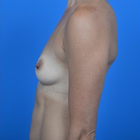
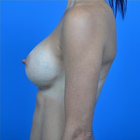
Full-side view
WHY US?
At Medijump, we're making medical easy. You can search, compare, discuss, and book your medical all in one place. We open the door to the best medical providers worldwide, saving you time and energy along the way, and it's all for FREE, no hidden fees, and no price markups guaranteed. So what are you waiting for?

Free

Best Price

Widest Selection

Risk-Free
What you need to know about Breast Augmentation in Ha Noi

Breast augmentation, also known as a Boob Job or Breast Enlargement, is a surgical procedure aimed at increasing breast size, enhancing shape, or improving symmetry. In Ha Noi, this procedure is carried out by board-certified plastic surgeons in accredited medical facilities, ensuring both safety and quality.
What is the cost of Breast Augmentation in Ha Noi?
Prices in Ha Noi are competitive, often offering savings without compromising on quality, especially when compared to costs in the US or Europe. However, factors such as surgeon’s fees, facility costs, and the type of implants affect the total cost.
What does a Breast Augmentation Procedure Involve?
The surgery involves placing breast implants under the breast tissue or chest muscles. Choices between saline or silicone implants can be made based on the desired feel and appearance. This is something your surgeon will discuss with you prior to even travelling.
How Long Should I Stay in Ha Noi for a Breast Augmentation Procedure?
The length of stay in Ha Noi for a Breast Augmentation is subject to various factors, such as your overall health, the specific nature of the procedure, and your individual recovery rate. Generally, Breast Augmentation surgery is an outpatient process, meaning you may be able to return home on the same day. However, a stay of up to two days might be necessary if your procedure is more intricate.
Although the hospital stay is relatively brief, it is advisable to remain in Ha Noi for at least one-week post-procedure. This timeframe allows for initial recovery and a follow-up appointment with the surgeon. Moreover, in the event of any complications, prompt medical assistance will be accessible. Thorough knowledge of the recovery process and its duration is crucial for proper preparation and managing stress during treatment.
What's the Recovery Time for Breast Augmentation Procedures in Ha Noi?
Post-surgery, a recovery period of one to two weeks is generally required, with follow-up visits to the surgeon. It's crucial to follow all post-op instructions for optimal healing.
Experiencing swelling and discomfort following the operation is normal, both of which should gradually alleviate with time. You will be required to wear a compression garment, take prescribed medications, and maintain a healthy lifestyle for an effective recovery.
What sort of Aftercare is Required for Breast Augmentation Procedures in Ha Noi?
Post-operative care is critical for the success of a Breast Augmentation. The initial recovery phase usually includes prescribed medications to alleviate pain and avert infection. Individuals can normally resume everyday activities within a few weeks, depending on their healing pace and bodily responses. However, it is advisable to refrain from vigorous activities for a minimum of six weeks post-procedure.
What's the Success Rate of Breast Augmentation Procedures in Ha Noi?
In Ha Noi, Breast Augmentation boasts a relatively high success rate, which contributes to its immense popularity among individuals seeking improvements in their physical appearance. Numerous patients have reported satisfaction and enhanced confidence after undergoing the procedure, making it a widely favoured cosmetic surgery.
Are there Alternatives to Breast Augmentation Procedures in Ha Noi?
In Ha Noi, there are several alternatives to the Breast Augmentation. If you're considering breast augmentation strictly for cosmetic reasons and prefer non-surgical options, various suitable methods are available. Alternatives include fat grafting, hormonal therapy, and natural remedies. Fat grafting, also known as fat transfer, involves removing fat from different body parts and injecting it into your breasts. This approach is regarded as safer because it employs the body's tissue, minimizing complications.
What Should You Expect Before and After the Procedure?
Prior to the procedure, your surgeon will discuss your expectations and the anticipated outcomes of your Breast Augmentation. The preoperative consultation comprises an in-depth conversation about your medical history, a physical examination, and an outline of the procedure and postoperative care. Open and candid communication with your healthcare provider is crucial at this stage to ensure the treatment matches your objectives.
Post-procedure, initial swelling and discomfort are normal and can be managed with prescribed medication. It's vital to adhere to your surgeon's post-operative guidelines, which include caring for surgical incisions, taking prescribed medications, and attending follow-up appointments. As swelling subsides and incision lines fade gradually, your enhanced breast profile will become apparent.
Keep in mind that the decision to pursue a Breast Augmentation is deeply personal and should not be made hastily. Allocate time to consider the advantages and drawbacks, and ensure you are well-informed.
What are the Risks and Complications of Breast Augmentation Procedures in Ha Noi?
As is the case with any surgical intervention, Breast Augmentation comes with its own set of risks and potential complications that need to be considered. These may include infections, bleeding, alterations in nipple or breast sensations, implant leakage or rupture, development of scar tissue, and unsatisfactory outcomes that could necessitate further surgeries.
Some individuals may also encounter complications tied to anesthesia, such as respiratory problems and reactions to medication. The psychological ramifications should not be overlooked, considering surgical procedures can impact mental well-being. An extensive conversation with your healthcare provider about these potential risks remains a key component in making an informed choice.
How to Prepare for Breast Augmentation in Ha Noi?
Thorough preparation plays a significant role in the success of your Breast Augmentation. Before the surgery, you must have detailed conversations with your surgeon about your medical background, allergies, current medications, and lifestyle habits such as smoking or alcohol consumption. You may need to cease certain medications and habits, including smoking, weeks before the procedure, as they can influence the healing process.
Practical preparations like organizing for someone to be with you on the day of the surgery, scheduling sufficient time off work for recovery, and establishing a comfortable space at home for recuperation can contribute to a smoother post-operative phase. Your surgeon's team will also advise you on pre-operative fasting and hygiene guidelines.
What are some Common Misconceptions about Breast Augmentation?
Despite its widespread popularity, numerous misconceptions surround the Breast Augmentation. One such misconception asserts that breast implants are permanent. In actuality, breast implants may require replacement after 10-15 years, with the specific timeframe depending on individual health and lifestyle factors. Another false assumption is that breast augmentation solely serves vanity purposes. In reality, many patients undergo this procedure following mastectomy or as part of gender-affirming surgery.
A further common myth suggests that breast augmentation hinders breastfeeding. While a few instances might affect breastfeeding, the majority of individuals with breast implants can successfully breastfeed.
Whilst the information presented here has been accurately sourced and verified by a medical professional for its accuracy, it is still advised to consult with your doctor before pursuing a medical treatment at one of the listed medical providers
No Time?
Tell us what you're looking for and we'll reachout to the top clinics all at once
Enquire Now

Popular Procedures in Ha Noi
Prices Start From $834

Prices Start From $500

Prices Start From $93

Prices Start From $85

Prices Start From $477

Prices Start From $931

Recommended Medical Centers in Ha Noi for Breast Augmentation

- Interpreter services
- Translation service
- Religious facilities
- Medical records transfer
- Medical travel insurance
- Health insurance coordination
- TV in the room
- Safe in the room
- Phone in the room
- Private rooms for patients available

- Interpreter services
- Translation service
- Religious facilities
- Medical records transfer
- Medical travel insurance
- Health insurance coordination
- TV in the room
- Safe in the room
- Phone in the room
- Private rooms for patients available

- Interpreter services
- Translation service
- Religious facilities
- Medical records transfer
- Medical travel insurance
- Health insurance coordination
- TV in the room
- Safe in the room
- Phone in the room
- Private rooms for patients available

- Interpreter services
- Translation service
- Religious facilities
- Medical records transfer
- Medical travel insurance
- Health insurance coordination
- TV in the room
- Safe in the room
- Phone in the room
- Private rooms for patients available
Breast Augmentation in and around Ha Noi
About Hanoi
Hanoi is Vietnam’s capital and the second-largest city by population. Located on the banks of Red River, it’s the major metropolitan and political center of the country. This chaotic and busy city is brimming with history, culture, and character. Known as one of the most ancient capitals in the world, the city charms its visitors with well-preserved colonial buildings, pagodas, and museums. Foreign tourists normally travel to the city to enjoy its history, but today, some of these foreign tourists are heading to its clinics and hospitals. Affordable healthcare and high-quality medical centers are the main factors that have attracted medical tourists and the most sought-after treatment is cosmetic surgery and dentistry.
Popular Parts of Hanoi
Hanoi offers many kinds of attractions for its visitors. The most popular part of the city is the Old Quarter, where visitors can experience Asia at its rawest. This 2000-year-old street is packed with over 1000 merchants. In this area, you can also get a glimpse of the strong influence the French had via its architecture. The area of Ba Dinh is also popular among foreign tourists. It’s the center of governance in Vietnam, as well as home to numerous historic sites, such as the One Pillar Pagoda and Hanoi Flag Tower. Those who are fascinated with Vietnam’s history and culture should visit the Temple of Literature, Quan Su Pagoda, or explore its many museums. Some of the popular museums are the Vietnam Women’s Museum, Army Museum, and the Vietnam National Museum of Fine Arts.
Transport in Hanoi
Noi Bai International airport is the biggest airport in Vietnam that serves both domestic and international flights to major cities in Asia and Europe. Several budget airlines operate from this airport, such as Jetstar Pacific and VietJet Air. Various modes of transport are available to get around the city. Taxis can be hailed from the street or by phone and are generally reliable. Motorcycle taxis and cyclo (similar to trishaw) are two of the most affordable options. Buses are also available. However, the easiest way to get around is by Grab motorbikes, which is similar to Uber.
Visas in Hanoi
Holders of passports issued to 24 countries, including Cambodia, Denmark, and the UK, are allowed to visit and stay in Hanoi for up to 90 days without a visa. Vietnam has introduced an electronic visa system in 2017, which is available for citizens of 81 countries, including all EU countries, Australia, and Japan.
Weather in Hanoi
Hanoi experiences a warm and humid subtropical climate. The summer, starting from late April, is characterized by sunny days and heatwaves, with occasional rain. The average temperature is around 27.5°C. Winter, from December to January, has a lot of cold days and the temperature can drop to 7°C. Autumn and spring have pleasant weather.
Additional Info
- Local Currency: Vietnamese Dong (VND) is the official currency, and 1 USD will get you around 23,270 VND.
- Money & Payments: ATMs can be found easily around the city. Cash is king, but credit cards are accepted in various hotels. Tipping is not expected but appreciated.
- Local Language: Vietnamese is the official and most spoken language in Hanoi. English is widely spoken, particularly in tourist areas.
- Local Culture and Religion: Most people in Hanoi follow Vietnamese folk religion or are not religious. Other religions, such as Buddhism and Christianity, are freely practiced.
- Public Holidays: Hanoi celebrates several public holidays, including New Year’s Day, Tet Holiday, Hung Kings Temple Festival, Reunification Day, International Labor Day, and National Day.
Popular Searches
- Plastic Surgery in Thailand
- Dental Implants in Thailand
- Hair Transplant in Thailand
- Breast Augmentation Thailand
- Gastric Sleeve in Thailand
- Gender Reassignment Surgery in Thailand
- Laser Hair Removal in Bangkok
- Botox in Bangkok
- Dermatology in Bangkok
- Breast Augmentation in Bangkok
- Coolsculpting in Bangkok
- Veneers in Turkey
- Hair Transplant in Turkey
- Rhinoplasty in Turkey
- Stem Cell Therapy in Mexico
- Rhinoplasty in Mexico
- Liposuction in Mexico
- Coolsculpting in Tijuana
- Rhinoplasty in Korea
- Scar Removal in Korea
- Gastric Sleeve in Turkey
- Bone Marrow Transplant in India
- Invisalign in Malaysia
- Plastic Surgery in the Dominican Republic
- Tummy Tuck in the Dominican Republic
- Plastic and Cosmetic Surgery in Poland
- Rhinoplasty in Poland
- Hair Implant in Poland
- Dental Implants in Poland
- IVF in Turkey
